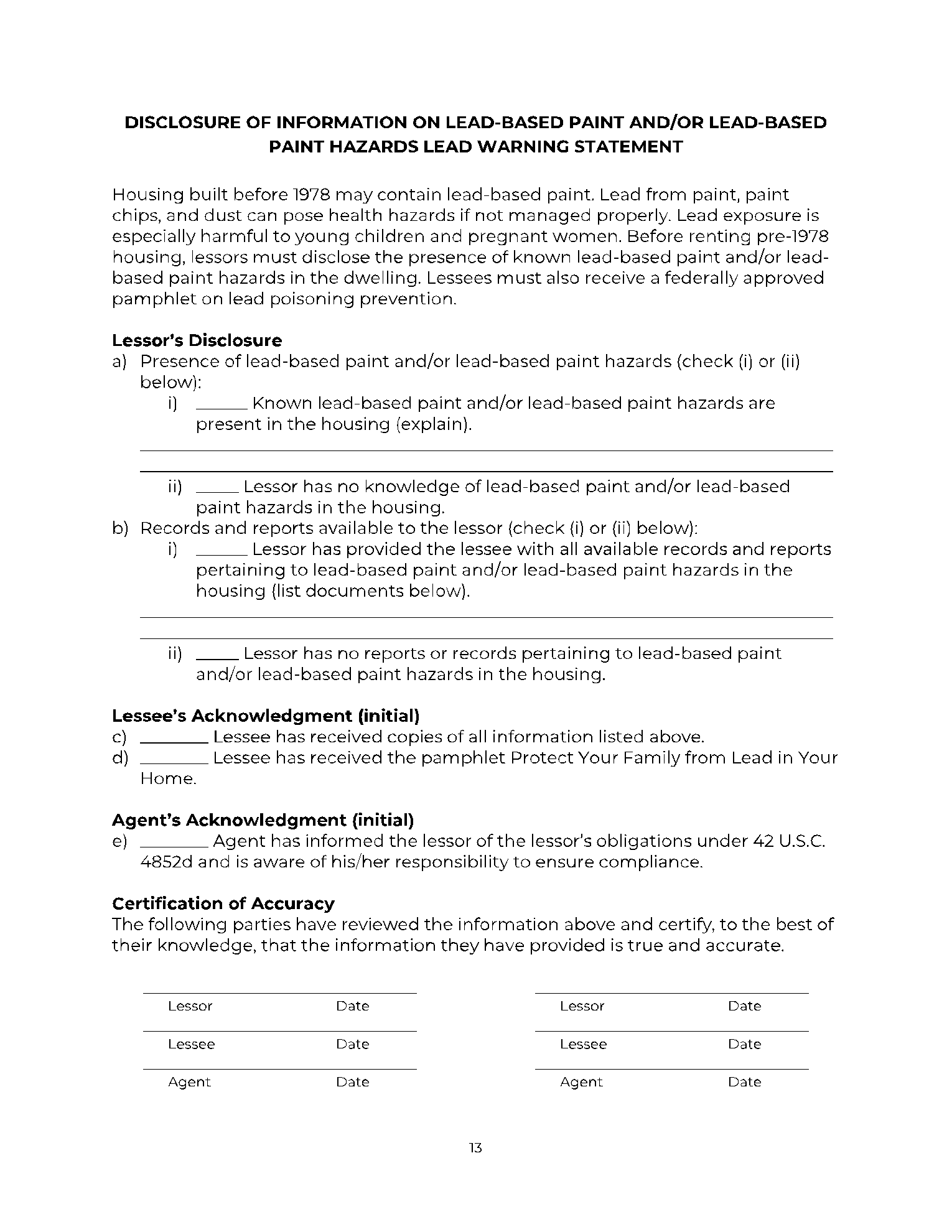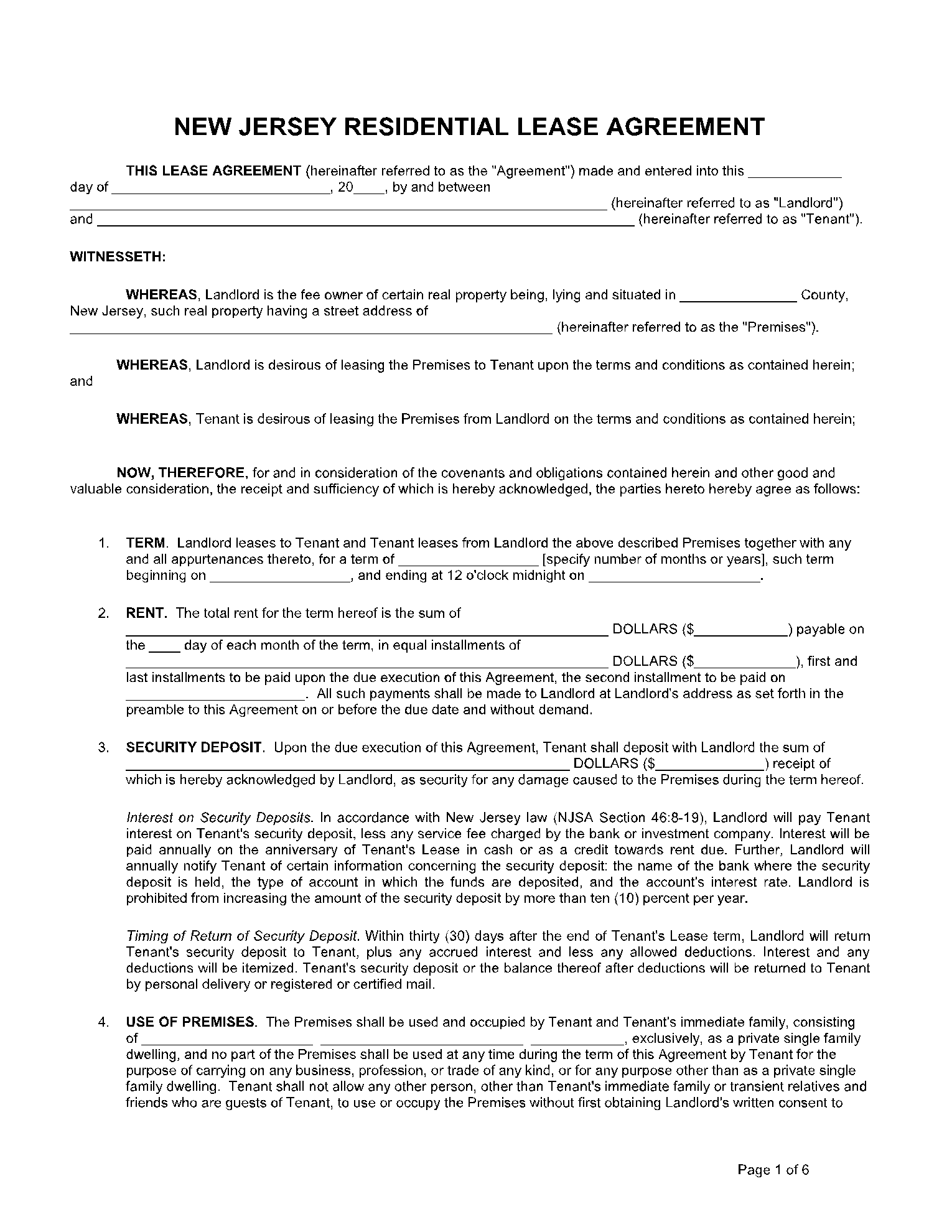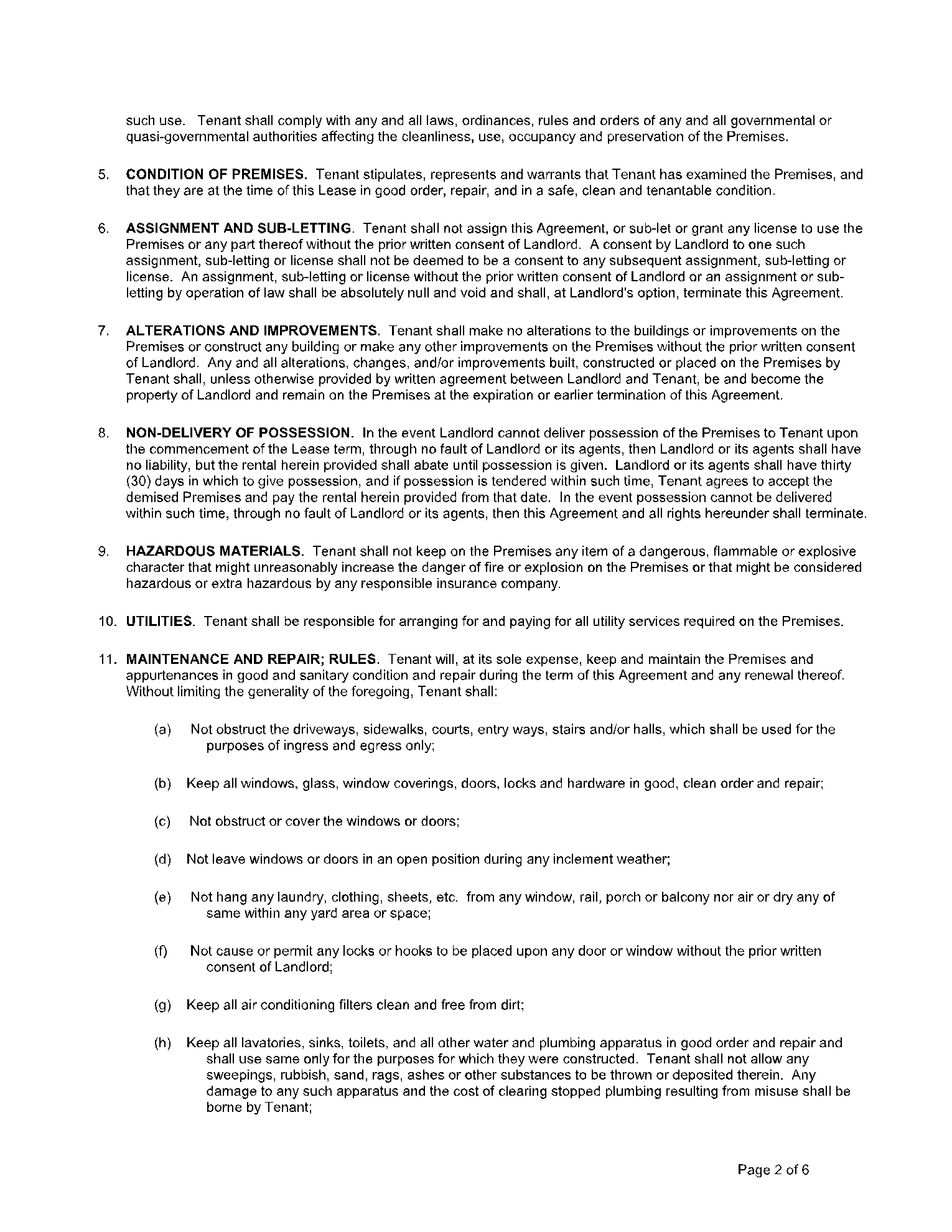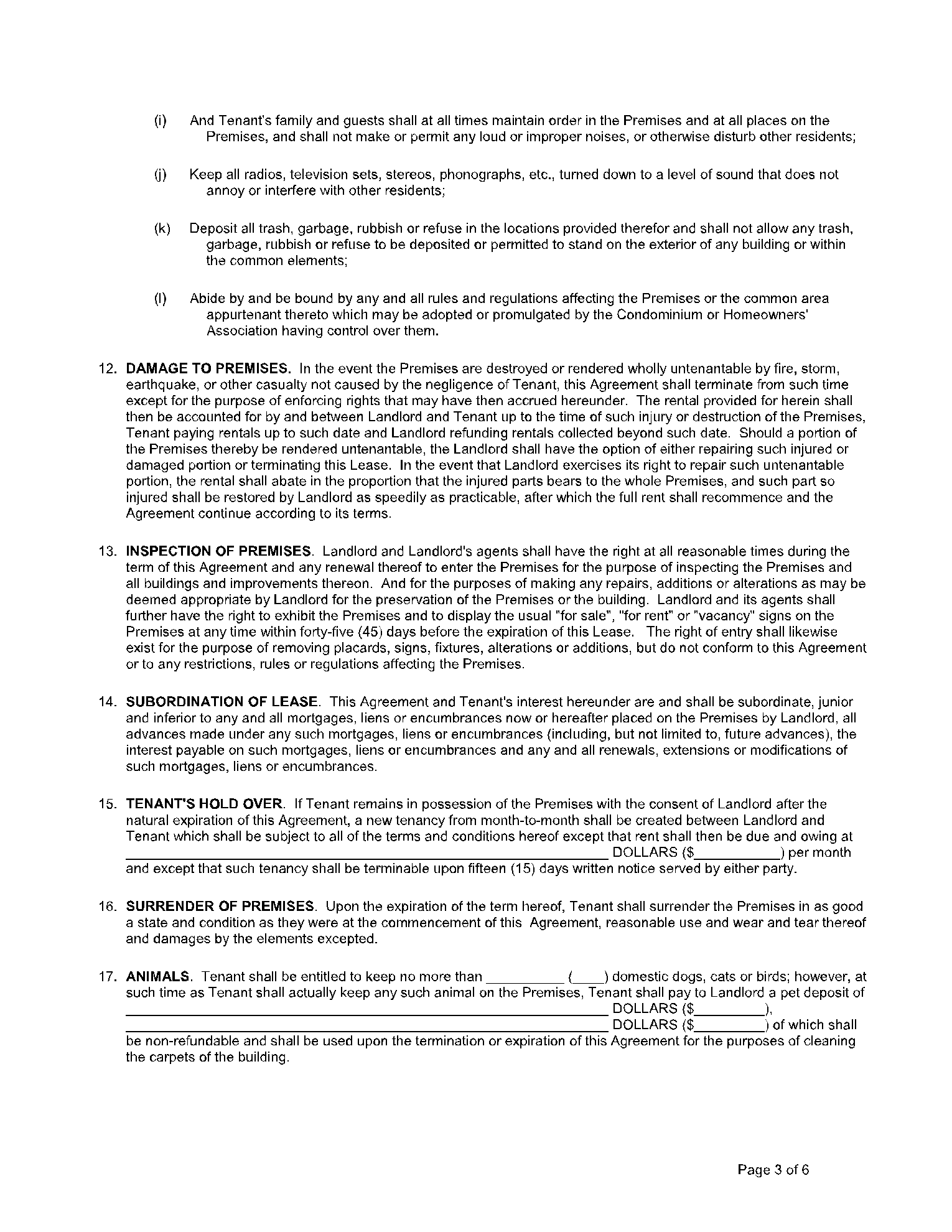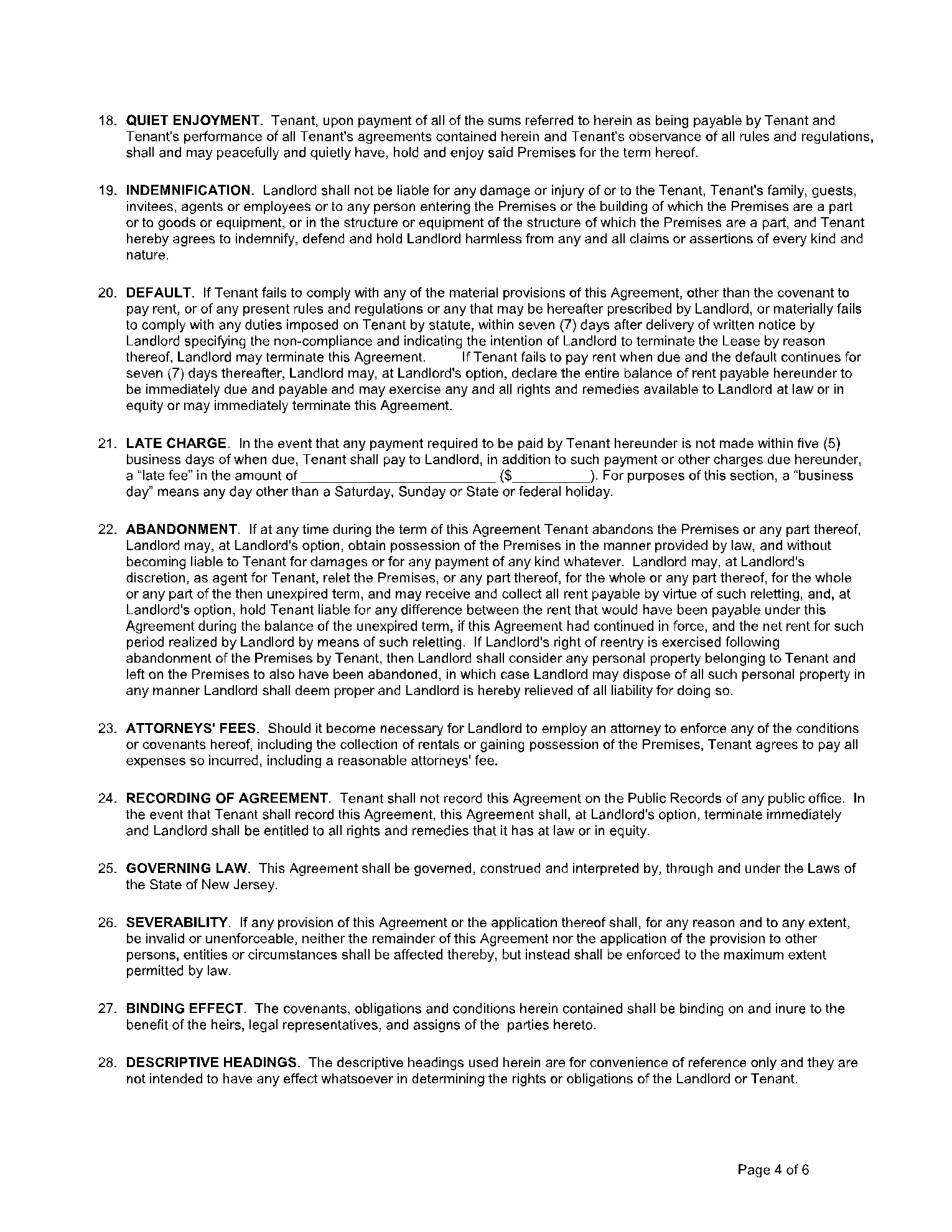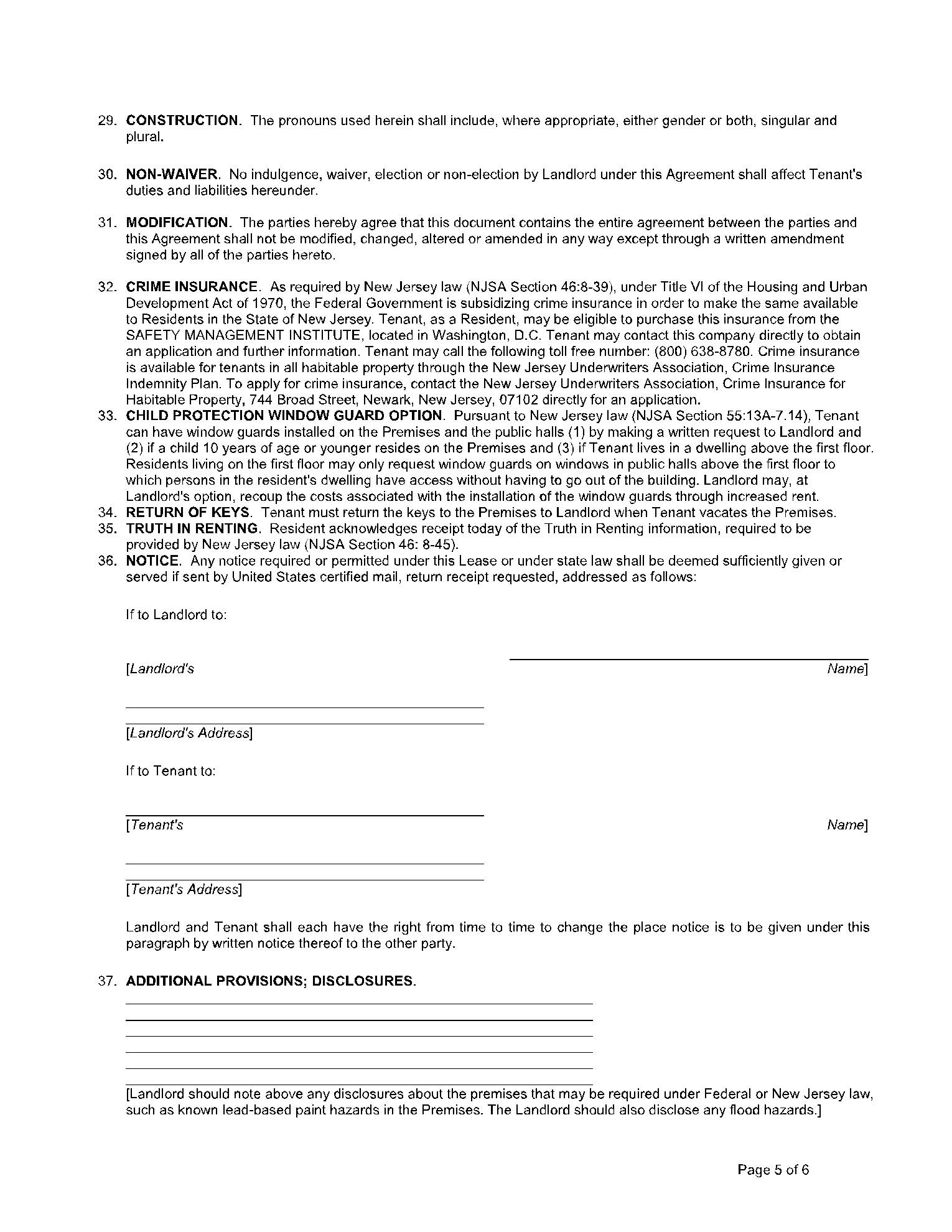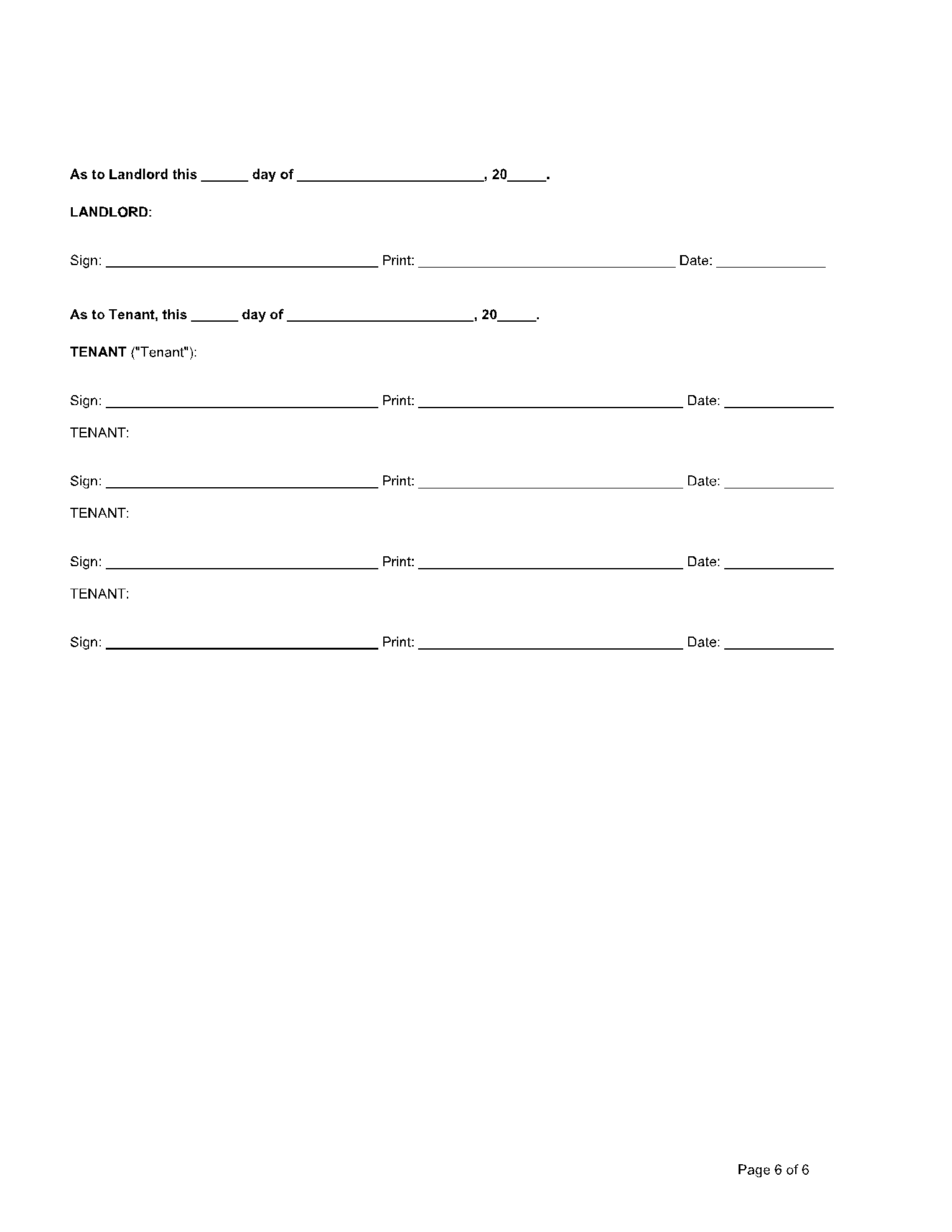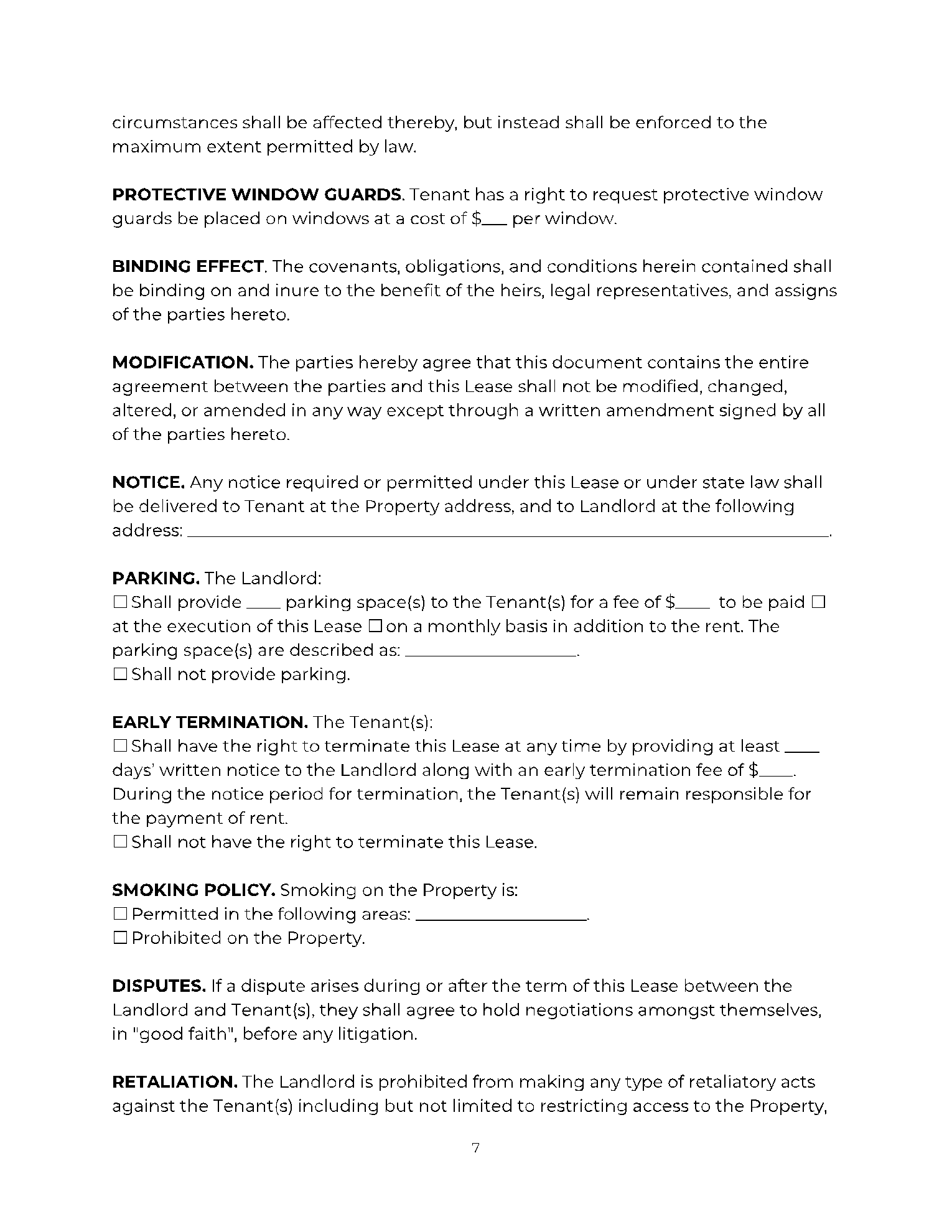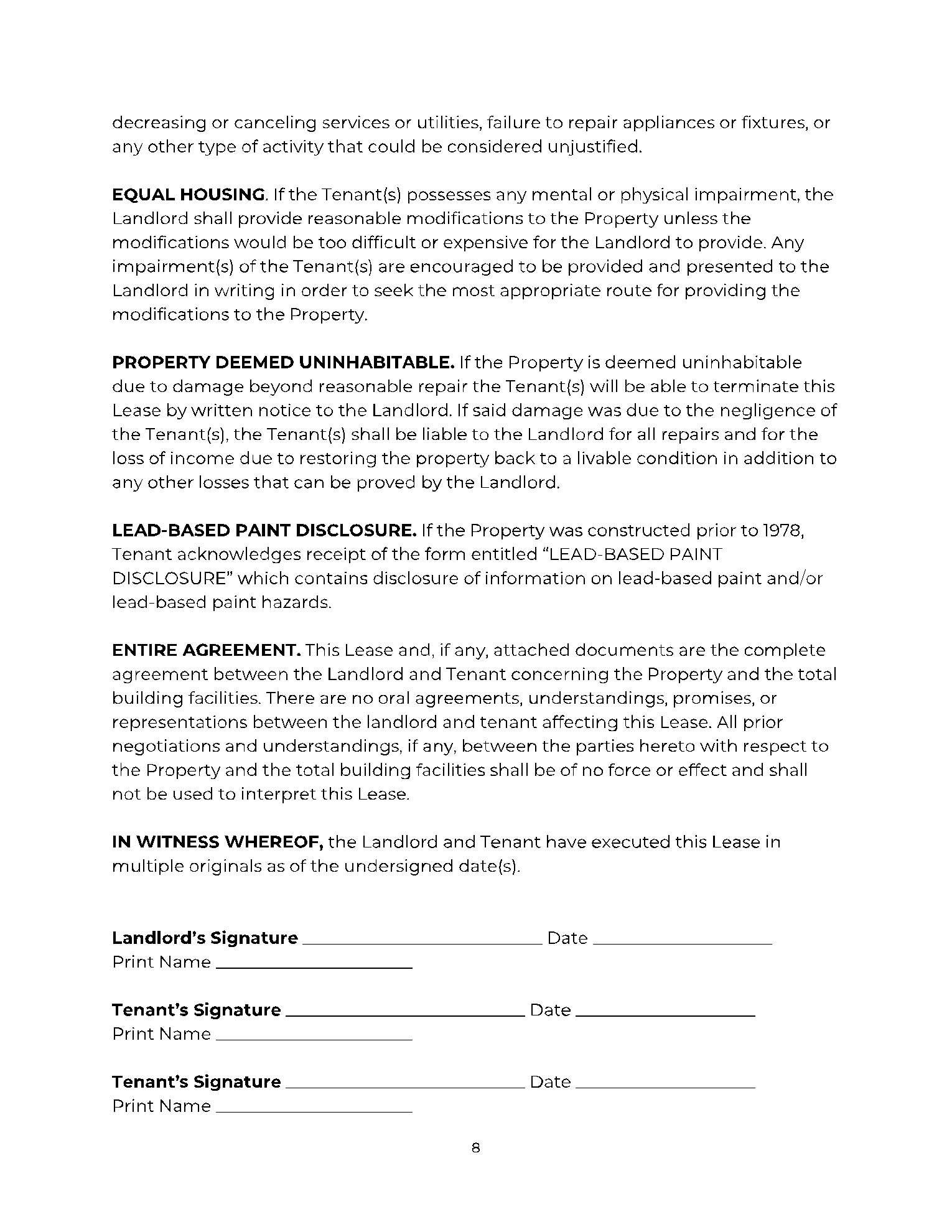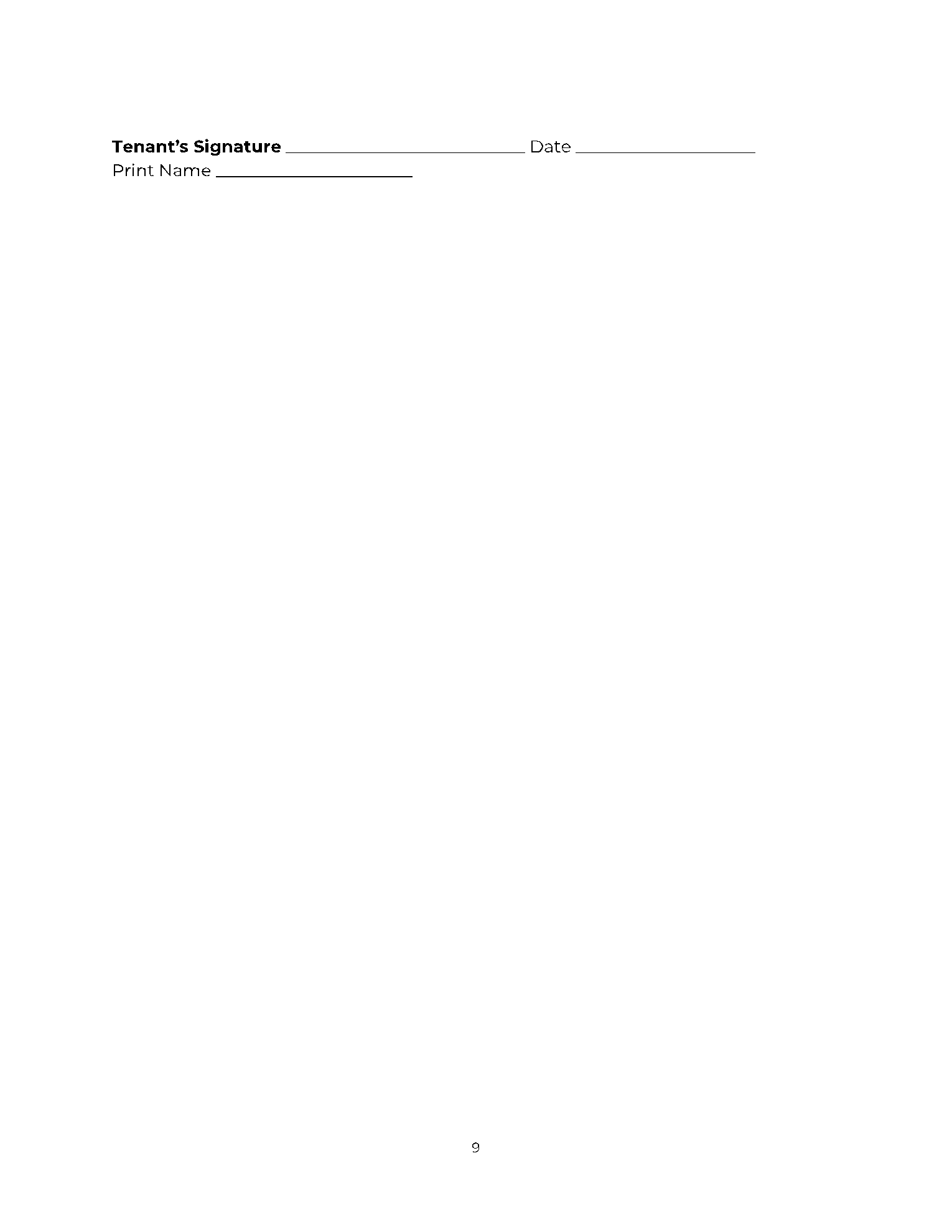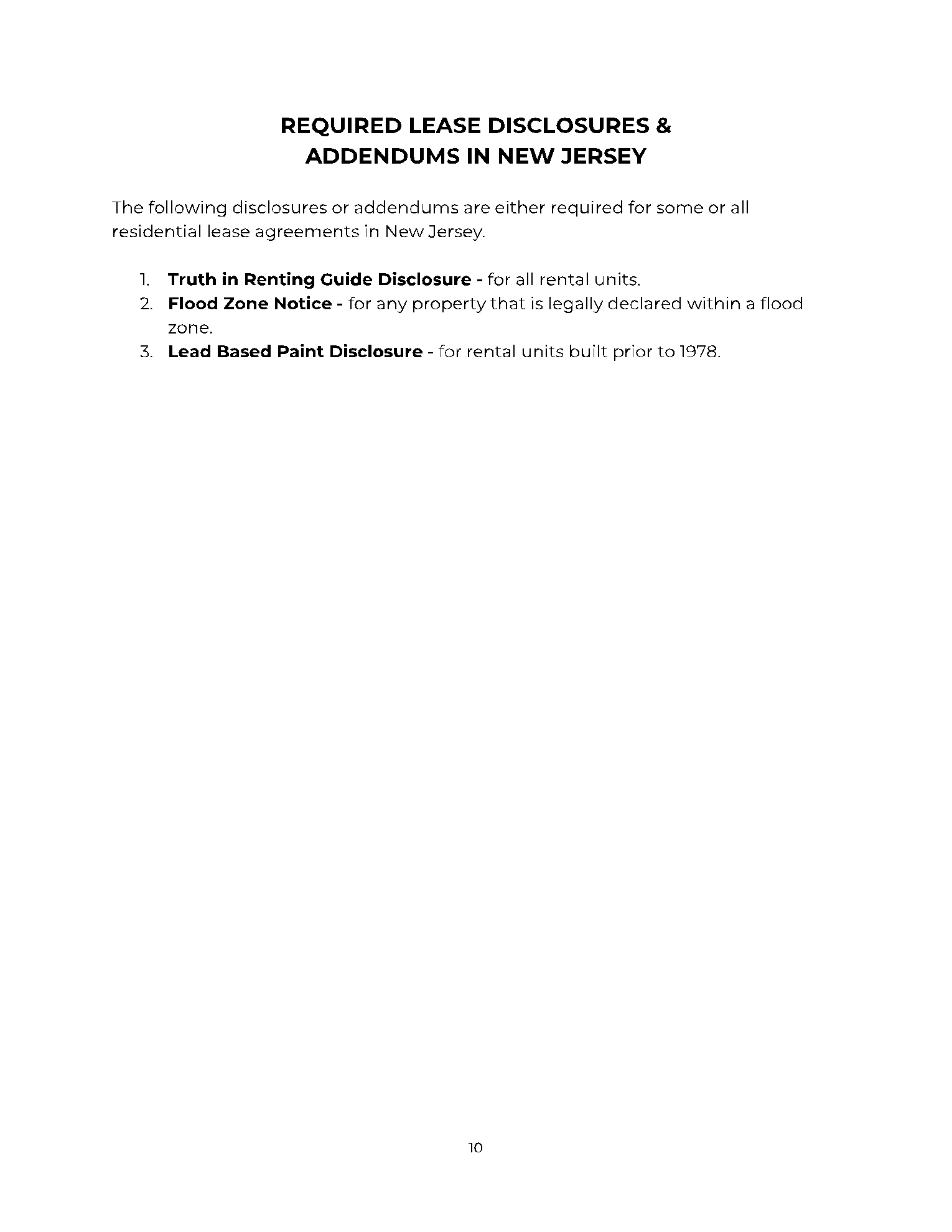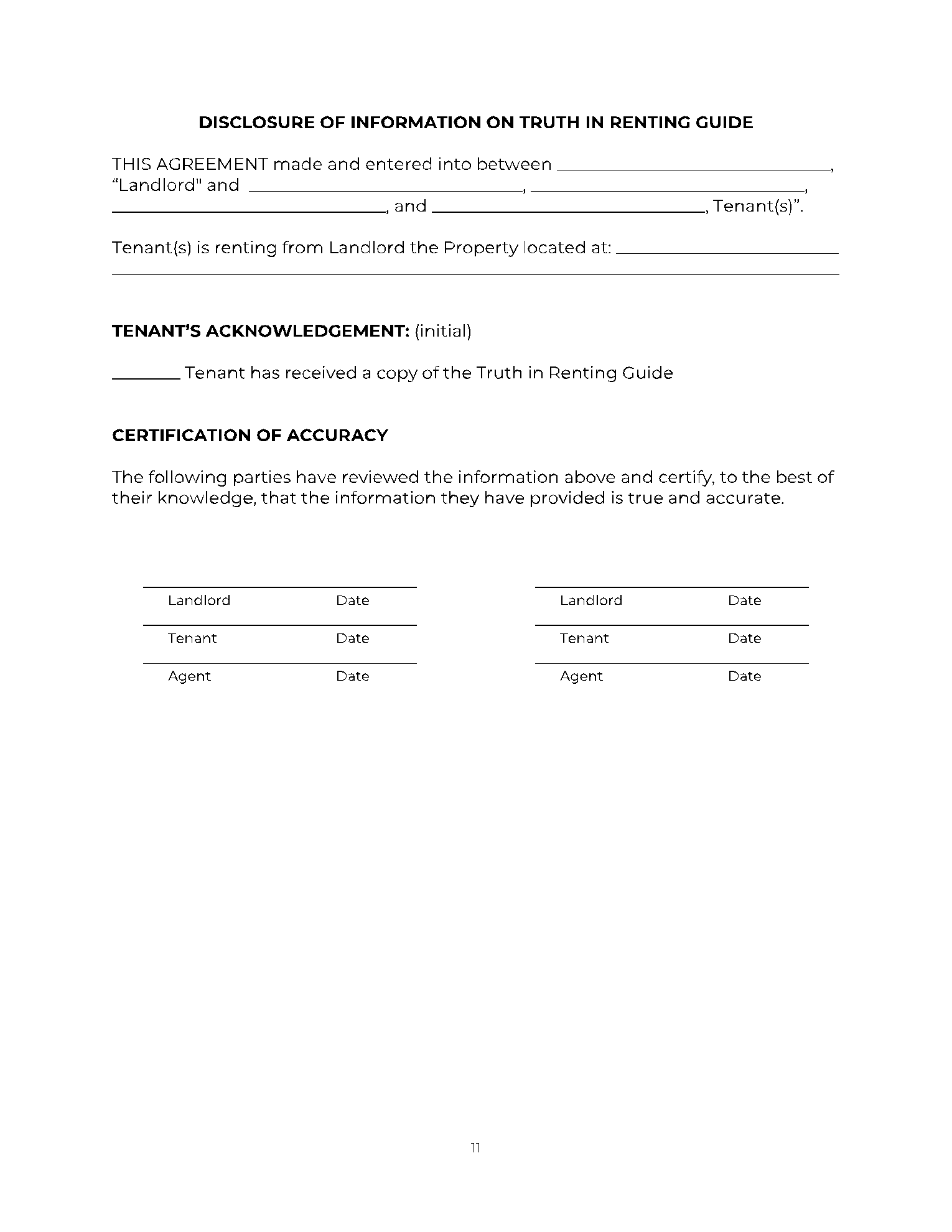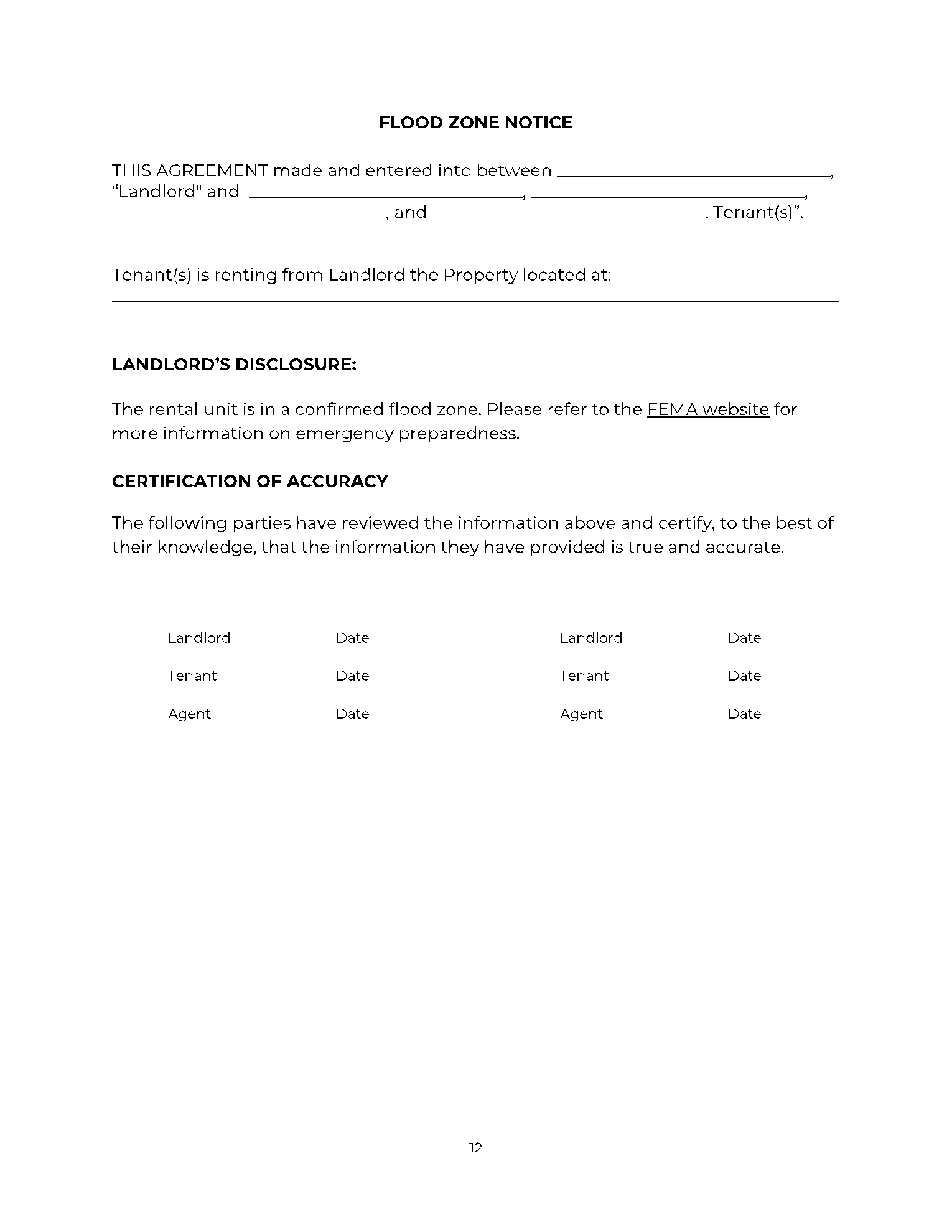Are you looking for property rentals in New Jersey? And are you unsure of how to find a rental unit that fits your needs? Do you want to know more about residential agreements? Then keep reading to know all the details. You can find a well-written template for a New Jersey residential lease agreement on CocoSign.
What Is a New Jersey Residential Lease Agreement?
The New Jersey residential lease agreement is a binding contract between a landlord and a tenant. Such a contract has a validity of one year. This is the most popular standard lease agreement for renting out residential properties to tenants.
The NJ lease agreement incorporates all essential details including rent, utilities, and responsibilities of both the landlord and the tenant. It is available in two forms:
- The New Jersey association of realtors standard form of a residential lease.
- The New Jersey standard lease agreement.
The NJ law restricts the amount of security deposit to a maximum of one and a half times the monthly rent. However, if the tenant chooses to renew his lease after a year, the landlord can raise the amount by 10%.
It is mandatory for the landlord to return the deposit amount within 30 days of the tenant reclaiming it. Failure to do so can lead to legal action against the landlord. However, in case of property damage, the landlord can legally keep some of the deposit amounts.
The state law grants the tenants a 5 day grace period to pay their rent past the due date. After this period, the landlord can impose a fine on the tenant.
Get a Free New Jersey Residential Lease Agreement Template from Here
Are you confused over the complicated terms required in the New Jersey residential agreement? Luckily, we have a ready-to-use template at your disposal. You can download and customize the agreement that fulfills all major renting details without paying any fees for it.
Access your FREE New Jersey Residential Lease Agreement from below.
Required Disclosures for a New Jersey Residential Agreement
The federal law requires the landlord to inform the potential tenants about the terms and conditions of the agreement. The agreement includes all the details about the due rent, utilities, validity period, etc.
- Flood Zones: If the rental unit is located in a potential flood zone, the landlord must inform the tenant. The tenant can also look up this information on the Flood Zone Lookup Tool. This information must be present in the lease along with its dangers.
- Lead-Based Paint: If the rental unit was constructed before 1978, there is a chance it may contain lead-based paint. It is the landlord’s responsibility to inform the tenant of this hazardous information.
- Truth In Renting Statement: This is a statement that describes all the rights of the tenant as well as the landlord. Moreover, it also describes their responsibilities. It is the legal responsibility of the landlords to provide this information to the tenants. However, this does not include the tenants who had signed the lease less than 30 days ago.
- Window Guards: Each lease must address the responsibilities of the landlord regarding the installment and maintenance of window guards on the property.
Who Needs a New Jersey Residential Lease Agreement?
Anyone who wishes to rent out his/her property to a potential tenant needs the NJ residential lease contract. This lease agreement is valid for a one-year duration. Moreover, the document provides complete legal coverage that is essential for leasing a property.
Furthermore, those who prefer a relatively longer commitment rather than a short contract also require a standard NJ lease agreement. Similarly, it offers the same benefits to tenants who wish to have a long-term contract.
Under the State law, both the landlord and the tenant must follow the terms of the NJ lease agreement. A landlord who wishes to check the tenant’s credentials before signing the lease must have a rental application from the tenant.
Get a Free New Jersey Residential Lease Agreement Template from Here
Are you confused over the complicated terms required in the New Jersey residential agreement? Luckily, we have a ready-to-use template at your disposal. You can download and customize the agreement that fulfills all major renting details without paying any fees for it.
Access your FREE New Jersey Residential Lease Agreement from below.
What You Can Use a New Jersey Residential Lease Agreement for?
The New Jersey standard residential lease agreement is a legal contract between a landlord and a tenant. However, one can only use NJ residential agreement for residential purposes and not for commercial purposes.
A landlord can use this agreement to rent out a building/portion of it, an apartment, or an entire unit. This agreement allows the tenants to rent units for a year rather than a few months. Therefore, the parties can use this agreement for a long term contract.
In addition to eliminating the hassle of renewing the lease frequently, the agreement also sets terms between the parties.
What Are Included in a New Jersey Residential Lease Agreement?
Typically a standard lease agreement NJ depends upon the type of agreement that the parties sign. In general, a simple residential lease agreement contains the following factors.
- Address of the Rental Unit: The lease agreement must include the complete address of the rental unit. This includes the street number, unit number, and also the state.
- Validity: The lease agreement must state clearly the time duration for which the agreement remains valid. The start date and the end date must appear clearly on the agreement document. This prevents any conflict in the future.
- Rent Details: The NJ residential lease agreement should incorporate all the rent details. These details include the amount of rent due and the date by which the tenant must pay the rent. Moreover, any other term associated with the rent payment should also be present in this section.
- Sharing of Utilities: The lease agreement must declare who is responsible to pay for the expenses of the utilities. The landlord and the tenant can agree on either sharing of utilities or including it in the monthly rent.
- Pets: The landlord and the tenants must decide in the agreement whether the tenant can keep any pet or not. Some landlords do not allow pets in their property so it is better to decide it in the agreement.
- Other Terms: The lease agreement should include other terms like grace period or fine charges. Whatever the grace period the landlord allows should appear in the lease document. Likewise, the fine the landlord may demand on late rent payment or violation of the agreement is important to include too.
Get a Free New Jersey Residential Lease Agreement Template from Here
Are you confused over the complicated terms required in the New Jersey residential agreement? Luckily, we have a ready-to-use template at your disposal. You can download and customize the agreement that fulfills all major renting details without paying any fees for it.
Access your FREE New Jersey Residential Lease Agreement from below.
Conclusion
You have read the laws regarding the New Jersey residential lease agreement. If interested, you can download a free NJ standard lease template from CocoSign. CocoSign offers a large variety of templates for you to choose from.
DOCUMENT PREVIEW
NEW JERSEY RESIDENTIAL LEASE AGREEMENT
THIS LEASE AGREEMENT (hereinafter referred to as the "Agreement") made and entered into this ____________ day of ____________________________, 20____, by and between _____________________________________________________________________ (hereinafter referred to as "Landlord") and _____________________________________________________________________ (hereinafter referred to as "Tenant").
WITNESSETH:
WHEREAS, Landlord is the fee owner of certain real property being, lying and situated in _______________ County, New Jersey, such real property having a street address of ______________________________________________________________ (hereinafter referred to as the "Premises").
WHEREAS, Landlord is desirous of leasing the Premises to Tenant upon the terms and conditions as contained herein; and
WHEREAS, Tenant is desirous of leasing the Premises from Landlord on the terms and conditions as contained herein;
NOW, THEREFORE, for and in consideration of the covenants and obligations contained herein and other good and valuable consideration, the receipt and sufficiency of which is hereby acknowledged, the parties hereto hereby agree as follows:
-
TERM. Landlord leases to Tenant and Tenant leases from Landlord the above described Premises together with any and all appurtenances thereto, for a term of __________________ [specify number of months or years], such term beginning on __________________, and ending at 12 o'clock midnight on ______________________.
-
RENT. The total rent for the term hereof is the sum of ______________________________________________________________ DOLLARS ($____________) payable on the ____ day of each month of the term, in equal installments of ______________________________________________________________ DOLLARS ($_____________), first and last installments to be paid upon the due execution of this Agreement, the second installment to be paid on _______________________. All such payments shall be made to Landlord at Landlord's address as set forth in the preamble to this Agreement on or before the due date and without demand.
-
SECURITY DEPOSIT. Upon the due execution of this Agreement, Tenant shall deposit with Landlord the sum of _________________________________________________________ DOLLARS ($______________) receipt of which is hereby acknowledged by Landlord, as security for any damage caused to the Premises during the term hereof.
Interest on Security Deposits. In accordance with New Jersey law (NJSA Section 46:8-19), Landlord will pay Tenant interest on Tenant's security deposit, less any service fee charged by the bank or investment company. Interest will be paid annually on the anniversary of Tenant's Lease in cash or as a credit towards rent due. Further, Landlord will annually notify Tenant of certain information concerning the security deposit: the name of the bank where the security deposit is held, the type of account in which the funds are deposited, and the account's interest rate. Landlord is prohibited from increasing the amount of the security deposit by more than ten (10) percent per year.
Timing of Return of Security Deposit. Within thirty (30) days after the end of Tenant's Lease term, Landlord will return Tenant's security deposit to Tenant, plus any accrued interest and less any allowed deductions. Interest and any deductions will be itemized. Tenant's security deposit or the balance thereof after deductions will be returned to Tenant by personal delivery or registered or certified mail.
-
USE OF PREMISES
. The Premises shall be used and occupied by Tenant and Tenant's immediate family, consisting of ______________________ __________________________ ____________, exclusively, as a private single family dwelling, and no part of the Premises shall be used at any time during the term of this Agreement by Tenant for the purpose of carrying on any business, profession, or trade of any kind, or for any purpose other than as a private single family dwelling. Tenant shall not allow any other person, other than Tenant's immediate family or transient relatives and friends who are guests of Tenant, to use or occupy the Premises without first obtaining Landlord's written consent to such use. Tenant shall comply with any and all laws, ordinances, rules and orders of any and all governmental or quasi-governmental authorities affecting the cleanliness, use, occupancy and preservation of the Premises.
-
CONDITION OF PREMISES. Tenant stipulates, represents and warrants that Tenant has examined the Premises, and that they are at the time of this Lease in good order, repair, and in a safe, clean and tenantable condition.
-
ASSIGNMENT AND SUB-LETTING. Tenant shall not assign this Agreement, or sub-let or grant any license to use the Premises or any part thereof without the prior written consent of Landlord. A consent by Landlord to one such assignment, sub-letting or license shall not be deemed to be a consent to any subsequent assignment, sub-letting or license. An assignment, sub-letting or license without the prior written consent of Landlord or an assignment or sub-letting by operation of law shall be absolutely null and void and shall, at Landlord's option, terminate this Agreement.
-
ALTERATIONS AND IMPROVEMENTS. Tenant shall make no alterations to the buildings or improvements on the Premises or construct any building or make any other improvements on the Premises without the prior written consent of Landlord. Any and all alterations, changes, and/or improvements built, constructed or placed on the Premises by Tenant shall, unless otherwise provided by written agreement between Landlord and Tenant, be and become the property of Landlord and remain on the Premises at the expiration or earlier termination of this Agreement.
-
NON-DELIVERY OF POSSESSION. In the event Landlord cannot deliver possession of the Premises to Tenant upon the commencement of the Lease term, through no fault of Landlord or its agents, then Landlord or its agents shall have no liability, but the rental herein provided shall abate until possession is given. Landlord or its agents shall have thirty (30) days in which to give possession, and if possession is tendered within such time, Tenant agrees to accept the demised Premises and pay the rental herein provided from that date. In the event possession cannot be delivered within such time, through no fault of Landlord or its agents, then this Agreement and all rights hereunder shall terminate.
-
HAZARDOUS MATERIALS. Tenant shall not keep on the Premises any item of a dangerous, flammable or explosive character that might unreasonably increase the danger of fire or explosion on the Premises or that might be considered hazardous or extra hazardous by any responsible insurance company.
-
UTILITIES. Tenant shall be responsible for arranging for and paying for all utility services required on the Premises.
-
MAINTENANCE AND REPAIR; RULES. Tenant will, at its sole expense, keep and maintain the Premises and appurtenances in good and sanitary condition and repair during the term of this Agreement and any renewal thereof. Without limiting the generality of the foregoing, Tenant shall:
(a) Not obstruct the driveways, sidewalks, courts, entry ways, stairs and/or halls, which shall be used for the purposes of ingress and egress only;
(b) Keep all windows, glass, window coverings, doors, locks and hardware in good, clean order and repair;
(c) Not obstruct or cover the windows or doors;
(d) Not leave windows or doors in an open position during any inclement weather;
(e) Not hang any laundry, clothing, sheets, etc. from any window, rail, porch or balcony nor air or dry any of same within any yard area or space;
(f) Not cause or permit any locks or hooks to be placed upon any door or window without the prior written consent of Landlord;
(g) Keep all air conditioning filters clean and free from dirt;
(h) Keep all lavatories, sinks, toilets, and all other water and plumbing apparatus in good order and repair and shall use same only for the purposes for which they were constructed. Tenant shall not allow any sweepings, rubbish, sand, rags, ashes or other substances to be thrown or deposited therein. Any damage to any such apparatus and the cost of clearing stopped plumbing resulting from misuse shall be borne by Tenant;
